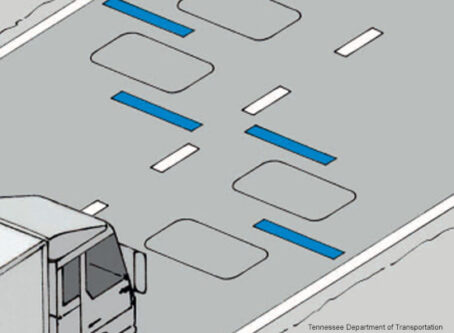Kentucky judge finds state’s speed limit statute unconstitutional
A Kentucky motorist took a speeding ticket to court, arguing that the speed limit laws in the state are unconstitutional. In a surprise move, a Jefferson District Court judge agreed.
On Sept. 19, Judge Julie Kaelin declared Kentucky Revised Statute 189.390 Sections 3-5 unconstitutionally vague. KRS 189.390 is the part of the traffic regulations in the state that deals with speed limits. Kaelin’s ruling only affects those sections. It does not prevent prosecution of speed limit citations based on different sections or statutes.
Approximately one year ago, Kevin Curry was ticketed for going 93 mph on a 55 mph zone on Interstate 71. Curry’s attorney, Greg Simms, fought the ticket by arguing the language of the speed limit statute is unconstitutionally vague.
In explaining her decision, Judge Kaelin said that statutes “must convey a sufficiently definite warning” regarding the illegal conduct. In other words, a reasonable person should be able to figure out what conduct the statute has banned.
“The statute sections at issue send the reader through a multi-step inquiry which, after going through these various steps, finally instruct its readers that actually, despite all other statutory language to the contrary, ‘the secretary of transportation may establish by official order a reasonable and safe speed limit at the location,’” Kaelin wrote.
Kaelin mentions how she could not locate where such orders are readily available. She “scoured” the internet, including the Kentucky Transportation Cabinet’s website. She asked if a lawyer cannot find an order that dictates at what speed his or her behavior becomes illegal on a given road, then how can the average citizen access that information?
The county argued that speed limit signs should be more than enough to ascertain what speeds are unacceptable. However, Kaelin pointed out that posted speed limit signs are nowhere to be found within state statutes.
“Again, this is a challenge to the face of the statute, and it simply does not matter that speed limit signs could be or should be enough, because the statute does not refer a motorist to such signs,” Kaelin wrote in her decision.
The county also argues that KRS 189.390 does not lead to arbitrary enforcement. Citations are issued based on math that derives from comparing the speed of a vehicle to the posted speed limit. Kaelin argued that this implies that citations are based on violating a sign.
“And therein lies the rub,” Kaelin wrote. “When a person is cited for speeding, they are not charged with violating a sign (though the number on the sign is very likely the number an officer uses when citing a person), they are charged with violating the statute. And in many cases, the statute and the sign are in conflict.”
Kaelin gave a hypothetical where a motorist is driving 45 mph in a business district as a result of a 45 mph speed limit sign. However, Section 3 of the statute in question could allow an officer to cite anyone going more than 35 mph “since the language of the statute does not allow a motorist to rely on a sign.”
Lastly, the county argued that ruling the statue unconstitutional will lead to a slippery slope of extremely dangerous behavior. Kaelin said that “the county has a myriad (indeed, an entire book) of other statutes” to prosecute. In fact, Kaelin gives the county a scolding for suggesting as much.
“Because of this, the court is not only unpersuaded by, but also quite baffled by, the county’s argument in its most recent brief that finding this statute (in whole or in part) void for vagueness would somehow open the citizenry to extremely dangerous behavior which could not be punished,” Kaelin wrote. “The court will not acquiesce to baseless scare tactics.”
Curry’s attorney applauded the judge’s decision, which he called a “very tough decision.”
“The legislature needs to clean this up,” Simms told Land Line in a statement. “One way to do that would be to put in some language such as ‘for the speed limit in any given area, refer to the posted sign.’ But Kentucky hasn’t done that. This judge scrutinized the law, the defense and the prosecution and made the very tough decision to make the right call. The law was unconstitutional and needs to be fixed.”
The county can appeal the district court’s decision.









